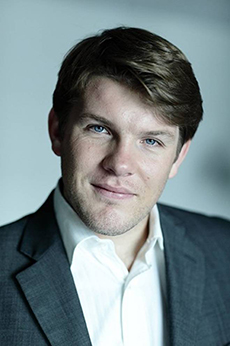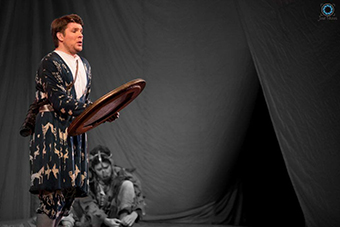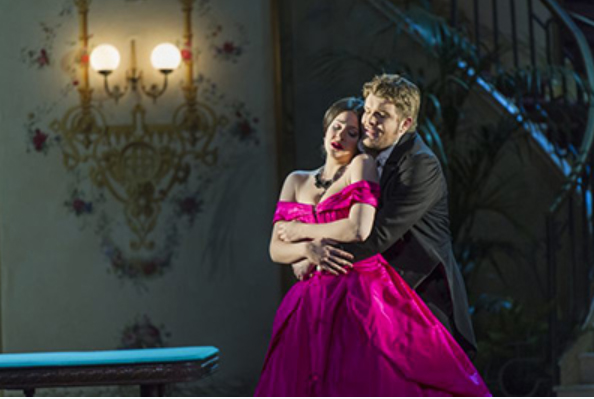French tenor Stanislas de Barbeyrac has performed in opera houses all over Europe, including Covent Garden’s Royal Opera House, the Opéra National de Paris, Staatsoper Berlin and the Teatro Real in Madrid. He talks to me from his home in France about the recent lockdown, and looking ahead to the future.
What have you missed most about not singing recently?

Stanislas de Barbeyrac © www.olyrix.com
We need to be on stage. I’m very worried about getting my level up by staying at home. I’m doing my homework, but you have to work with a conductor or director that pushes you. Adrenaline is the spirit of our art.
I miss the stage, and the kind of pressure you feel when you go on stage. […] Because I have this pressure on my shoulders, I want to go higher every time and try to reach something else. I’m always in a process of trying something else. I miss being on stage, listening to my voice, and the advice too, that some conductors or directors give. I need this to improve myself.
How did you start singing, and what inspired you to become an opera singer?

De Barbeyrac as Tamino in Mozart’s The Magic Flute
© www.stanislasdebarbeyrac.fr
I was singing when I was a child, from age eight, in a boys choir in France, but I didn’t know anything about opera – it was something really different for me. I discovered opera when I decided to train my voice when I was 19 in Bordeaux. There was a good choir in the conservatoire in Bordeaux […] so I decided to take some singing classes. I’d just got there and there was a new teacher. The first lesson with him was my first discovery of the opera world, and it was like thunder for me.
Do you have any favourite roles?
I like doing Pelleas a lot. The music is so fantastic, to do it is so amazing. Werther is an amazing role for tenors, but I’ll have to wait a bit for that.
Does your method of preparation change with each role you sing?
I don’t prepare in the same way to sing Don Jose [from Carmen] or Tamino [from The Magic Flute] – I can sing Tamino in the morning with my coffee now, but I would have to prepare for Don Jose, or Werther, this young Wagner repertoire, physically – to work on my stomach and my diaphragm, to be able to support these very long roles. It’s very important to be physically well-prepared.

De Barbeyrac as Alfredo in Verdi’s La Traviata
© www.stanislasdebarbeyrac.fr
How do you pace yourself in rehearsals for opera?
I’m strict with my agent now. I want to know the director, I want to know the conductor. I really don’t want to lose time anymore. When you have no staging, and six weeks of rehearsals doing nothing, because people don’t know the score… there are so many people like that. It has to change. If we get less money, spend it better please!
It’s not self-confidence – I did it, and I know it’s not good for me. I’m not good in this kind of process. I didn’t choose to be an opera singer to do a job – it’s so special. Sometimes I did a very difficult opera in six or seven days. When you know you don’t have much time in rehearsals you are well-prepared and want to do something good.




